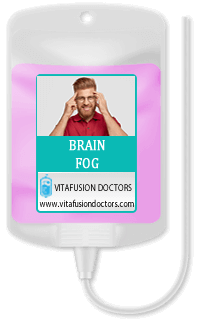Brain Fog: Potential Reasons
People can experience brain fog for various reasons:
Fatigue: Lack of sleep, overexertion, or chronic fatigue can lead to brain fog.
Stress: High levels of stress can impact cognitive function and contribute to brain fog.
Nutritional deficiencies: Inadequate intake of essential nutrients like vitamins B12 and D, omega-3 fatty acids, and magnesium can affect brain function.
Dehydration: Not drinking enough water can lead to cognitive impairment and brain fog.
Medications: Some medications, particularly those that affect the central nervous system, can lead to cognitive difficulties and brain fog as a side effect.
Poor sleep quality: Even if you get enough sleep, poor sleep quality (e.g., frequent awakenings, sleep apnea) can result in brain fog.
How can I manage brain fog?
To overcome brain fog, you can try the following strategies:
Improve Sleep: Ensure you’re getting enough quality sleep each night. Stick to a consistent sleep schedule, create a relaxing bedtime routine, and optimize your sleep environment for restfulness.
Stay Hydrated: Drink plenty of water throughout the day to prevent dehydration, which can contribute to brain fog.
Eat a Balanced Diet: Consume a well-rounded diet rich in fruits, vegetables, lean proteins, healthy fats, and whole grains. Avoid excessive sugar and processed foods, as they can lead to energy crashes and cognitive impairment.
Exercise Regularly: Engage in regular physical activity, as it can boost circulation, improve mood, and enhance cognitive function.
Manage Stress: Practice stress-reducing techniques such as mindfulness meditation, deep breathing exercises, yoga, or tai chi to help clear your mind and improve focus.
Address Nutritional Deficiencies: Consult with a healthcare professional to identify and address any nutritional deficiencies that may be contributing to brain fog.
Limit Caffeine and Alcohol: While moderate caffeine intake can provide a temporary cognitive boost, excessive consumption can lead to jitteriness and worsen brain fog. Similarly, limit alcohol intake, as it can impair cognitive function.
Take Breaks: If you’re working or studying for extended periods, take regular breaks to rest your mind and prevent mental fatigue.
Prioritize Tasks: Break down tasks into smaller, manageable steps and prioritize them based on importance. This can help reduce overwhelm and improve productivity.
Seek Professional Help: If brain fog persists despite lifestyle changes, consider consulting with a healthcare provider to rule out underlying medical conditions or medication-related issues.
Implementing these strategies can help you overcome brain fog and improve your overall cognitive function and mental clarity.

Brain FOG IV Fusion
If you are suffering from brain fog, consult with VitaFusion Doctors and wellness clinic. We offer Brain Fog IV Drip.
Brain Fog
Cost $225
package of 4 IV infusions: $800
package of 8 IV infusions $1550
May help support cognitive function
What’s Inside?
Folic acid | Vitamin B12 | L-Taurine | alpha-lipoic acid | using coveted alpha lipoic acid
Frequency: We suggest weekly infusion x 6 weeks, followed by a monthly maintenance infusion.
Benefits
Alpha-lipoic acid: Preclinical research suggests that Alpha-Lipoic acid scavenges free radicals, reduces inflammation, and may protect brain cells from conditions such as stroke, multiple sclerosis, and Alzheimer’s disease; also shown in studies that it may help ward off memory loss
L-Taurine: Taurine may have a protective effect on the brain. As a 2017 review posted to Brain Defects Research
Trusted Source notes, taurine supplementation works to promote healthy long-term memory storage.
According to the review, the amount of taurine in the brain decreases with age. Taurine supplementation may help to maintain these levels across the lifespan. Some scientists believe that this could fend off certain age-related neurodegenerative conditions. (https://www.medicalnewstoday.com/articles/326714#benefits-and-risks)








